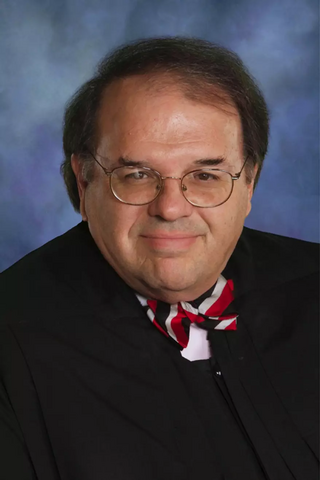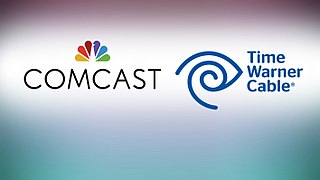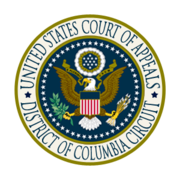
Warner Media, LLC was an American multinational mass media and entertainment conglomerate owned by AT&T. It was headquartered at the 30 Hudson Yards complex in New York City.

In the United States, antitrust law is a collection of mostly federal laws that govern the conduct and organization of businesses in order to promote economic competition and prevent unjustified monopolies. The three main U.S. antitrust statutes are the Sherman Act of 1890, the Clayton Act of 1914, and the Federal Trade Commission Act of 1914. These acts serve three major functions. First, Section 1 of the Sherman Act prohibits price fixing and the operation of cartels, and prohibits other collusive practices that unreasonably restrain trade. Second, Section 7 of the Clayton Act restricts the mergers and acquisitions of organizations that may substantially lessen competition or tend to create a monopoly. Third, Section 2 of the Sherman Act prohibits monopolization.

Comcast Corporation, formerly known as Comcast Holdings, is an American multinational mass media corporation that works in telecommunications and entertainment. It is headquartered at the Comcast Center in Philadelphia. Comcast is the fourth-largest broadcasting and cable television company worldwide by revenue. It is the third-largest pay-TV company, the second-largest cable TV company by subscribers, and the largest home Internet service provider in the United States. In 2023, the company was ranked 51st in the Forbes Global 2000.

The Commissioner for Competition is the member of the European Commission responsible for competition. The current commissioner is Teresa Ribera.

AT&T Communications is a division of AT&T that focuses on mobile phone, broadband, fixed line telephone, home security, network security, and business services. The division houses AT&T Mobility, AT&T Internet, AT&T Phone, AT&T Long Distance, AT&T Labs, AT&T Digital Life, and AT&T Cybersecurity.

Richard J. Leon is an American jurist who serves as a senior United States district judge of the United States District Court for the District of Columbia.

Microsoft Corp. v. Commission is a case brought by the European Commission of the European Union (EU) against Microsoft for abuse of its dominant position in the market. It started as a complaint from Sun Microsystems over Microsoft's licensing practices in 1993, and eventually resulted in the EU ordering Microsoft to divulge certain information about its server products and release a version of Microsoft Windows without Windows Media Player. The European Commission especially focused on the interoperability issue.

United States v. AT&T, 552 F.Supp. 131 (1982), was a ruling of the United States District Court for the District of Columbia, that led to the 1984 Bell System divestiture, and the breakup of the old AT&T natural monopoly into seven regional Bell operating companies and a much smaller new version of AT&T.
Associated Press v. United States, 326 U.S. 1 (1945), was a ruling of the United States Supreme Court. concerning both antitrust law and freedom of the press. The ruling confirmed that anticompetitive behavior in the news industry should be subjected to a First Amendment analysis on the ability of the public to receive information from multiple sources.

Home Box Office, Inc. (HBO) is an American multinational media and entertainment company operating as a unit of Warner Bros. Discovery. Founded by Charles Dolan and based out of WarnerMedia's former corporate headquarters at the 30 Hudson Yards complex in the West Side of Manhattan, its main properties include its namesake pay television network Home Box Office (HBO), sister service Cinemax, HBO Films, and the former HBO Go streaming service. It has also licensed or maintained ownership interests in international versions of HBO and Cinemax, most of which are managed by Home Box Office, Inc. through sister division Warner Bros. Discovery International.
Illinois Brick Co. v. Illinois, 431 U.S. 720 (1977), is a United States Supreme Court case that involved issues concerning statutory standing in antitrust law.
Daniel M. Petrocelli is a partner at O’Melveny & Myers LLP and the Chair of the firm’s Trial Practice Committee. Petrocelli is known in part for his work in a 1997 wrongful death civil suit against O. J. Simpson, for representing Enron CEO Jeffrey Skilling, and for his leading role in defeating the US Department of Justice’s attempt to block the merger of AT&T and Time Warner.

On March 20, 2011, AT&T announced that it would purchase T-Mobile USA. On August 31, 2011, the Antitrust Division of the United States Department of Justice formally announced that it would seek to block the takeover, and filed a lawsuit to such effect in federal court. The bid was abandoned by AT&T on December 19, 2011.
Pfizer Inc. v. Government of India, 434 U.S. 308 (1978), decision of the Supreme Court of the United States in which the Court held that foreign states are entitled to sue for treble damages in U.S. courts, and should be recognized as "persons" under the Clayton Act.
The history of AT&T dates back to the invention of the telephone. The Bell Telephone Company was established in 1877 by Alexander Graham Bell, who obtained the first US patent for the telephone, and his father-in-law, Gardiner Greene Hubbard. Bell and Hubbard also established American Telephone and Telegraph Company in 1885, which acquired the Bell Telephone Company and became the primary telephone company in the United States. This company maintained an effective monopoly on local telephone service in the United States until anti-trust regulators agreed to allow AT&T to retain Western Electric and enter general trades computer manufacture and sales in return for its offer to split the Bell System by divesting itself of ownership of the Bell Operating Companies in 1982.

The history of United States antitrust law is generally taken to begin with the Sherman Antitrust Act 1890, although some form of policy to regulate competition in the market economy has existed throughout the common law's history. Although "trust" had a technical legal meaning, the word was commonly used to denote big business, especially a large, growing manufacturing conglomerate of the sort that suddenly emerged in great numbers in the 1880s and 1890s. The Interstate Commerce Act of 1887 began a shift towards federal rather than state regulation of big business. It was followed by the Sherman Antitrust Act of 1890, the Clayton Antitrust Act and the Federal Trade Commission Act of 1914, the Robinson-Patman Act of 1936, and the Celler-Kefauver Act of 1950.

On February 13, 2014, Comcast Corporation announced its intent to acquire Time Warner Cable. The deal was proposed to take the form of a stock swap, estimated at the time of announcement to be worth about $45.2 billion. The two companies argued that the merger would increase their overall scale, allowing the company to become more competitive, improve customer service quality, and quicken innovation. The companies also argued that the deal would increase competition in the United States' cable television and internet markets, as they planned to divest subscribers to Charter Communications to regulate the market share of their combined operation.

Makan Delrahim is an Iranian-American attorney and lobbyist. From 2017 to 2021, Delrahim served under President Donald Trump as Assistant Attorney General for the Department of Justice Antitrust Division.
Ohio v. American Express Co., 585 U.S. ___ (2018), was a United States Supreme Court case regarding the nature of antitrust law in relationship to two-sided markets. The case specifically involves policies set by some credit card banks that prevented merchants from steering customers to use cards from other issuers with lower transaction fees, forcing merchants to pay higher transaction fees to the banks. While Visa and MasterCard settled with the United States Department of Justice in 2010, American Express defended its practice by arguing that the anti-steering policies benefited its cardholders, the higher transaction fees helping to maintain member services. While the Department of Justice and several states prevailed during a District Court trial in 2015 citing harm to the merchants, the Appeals Court reversed the District Court's ruling in 2016 by ruling that the plaintiffs had not shown harm to both sides of the two-side market, a novel test in antitrust law. This decision led to some of the states to appeal to the Supreme Court. The case was heard by the Court in February 2018.
Apple Inc. v. Pepper, 587 U.S. ___ (2019), was a United States Supreme Court case related to antitrust laws related to third-party resellers. The case centers on Apple Inc.'s App Store, and whether consumers of apps offered through the store have Article III standing under federal antitrust laws to bring a class-action antitrust lawsuit against Apple for practices it uses to regulate the App Store. The case centers on the applicability of the "Illinois Brick doctrine" established by the Supreme Court in 1977 via Illinois Brick Co. v. Illinois, which determined that indirect consumers of products lack Article III standing to bring antitrust charges against producers of those products. In its 5–4 decision, the Supreme Court ruled that since consumers purchased apps directly through Apple, that they have standing under Illinois Brick to seek antitrust charges against Apple.













